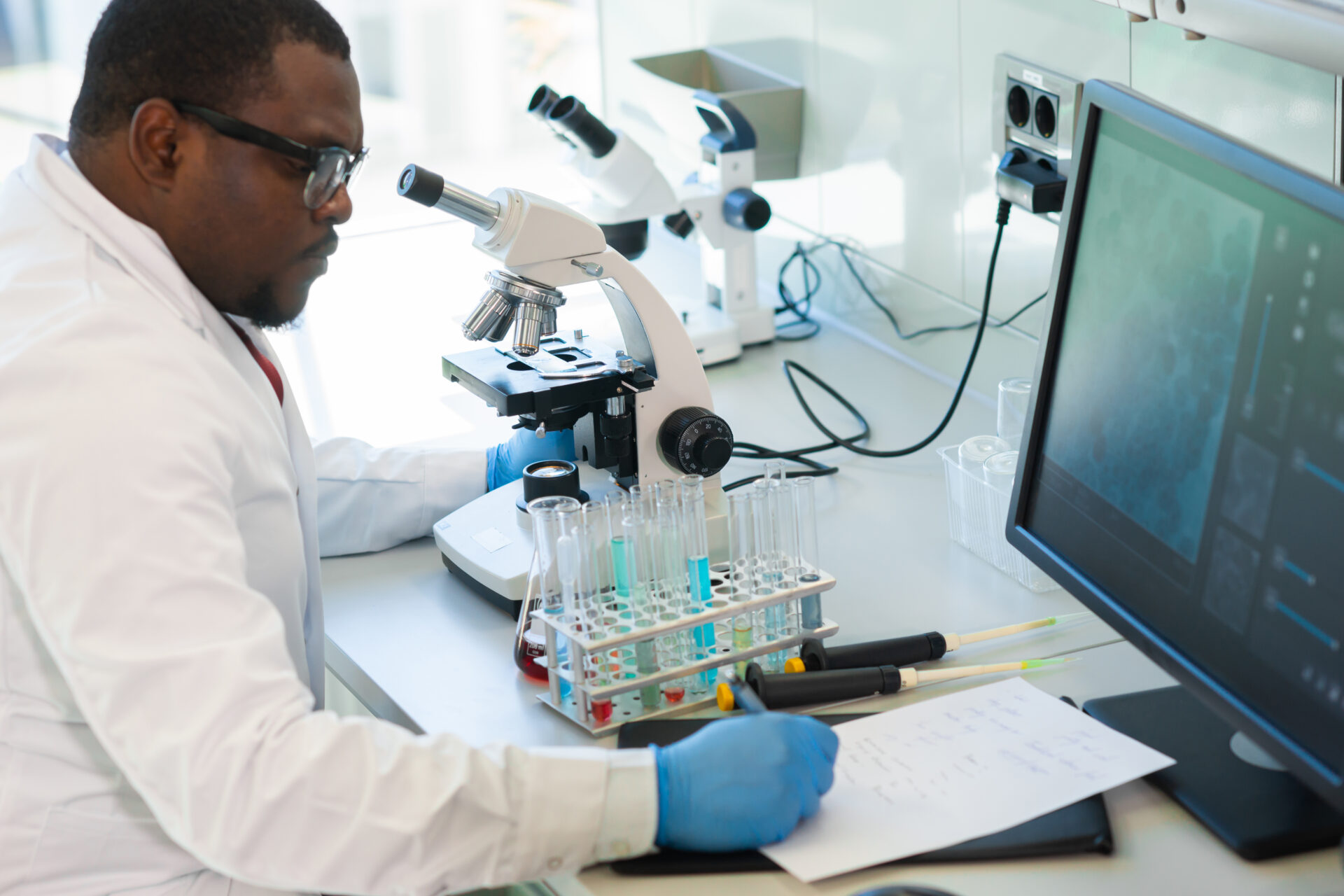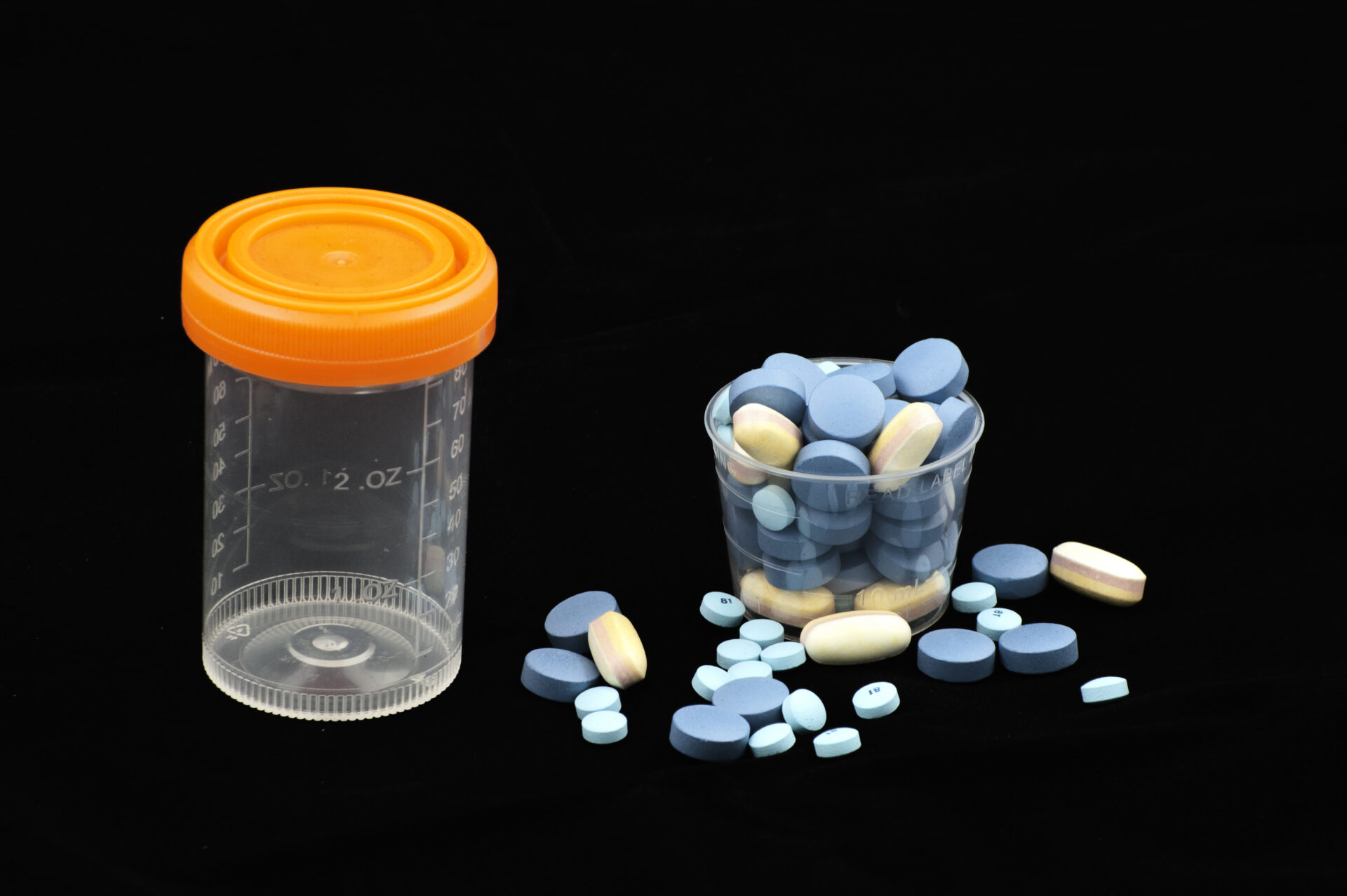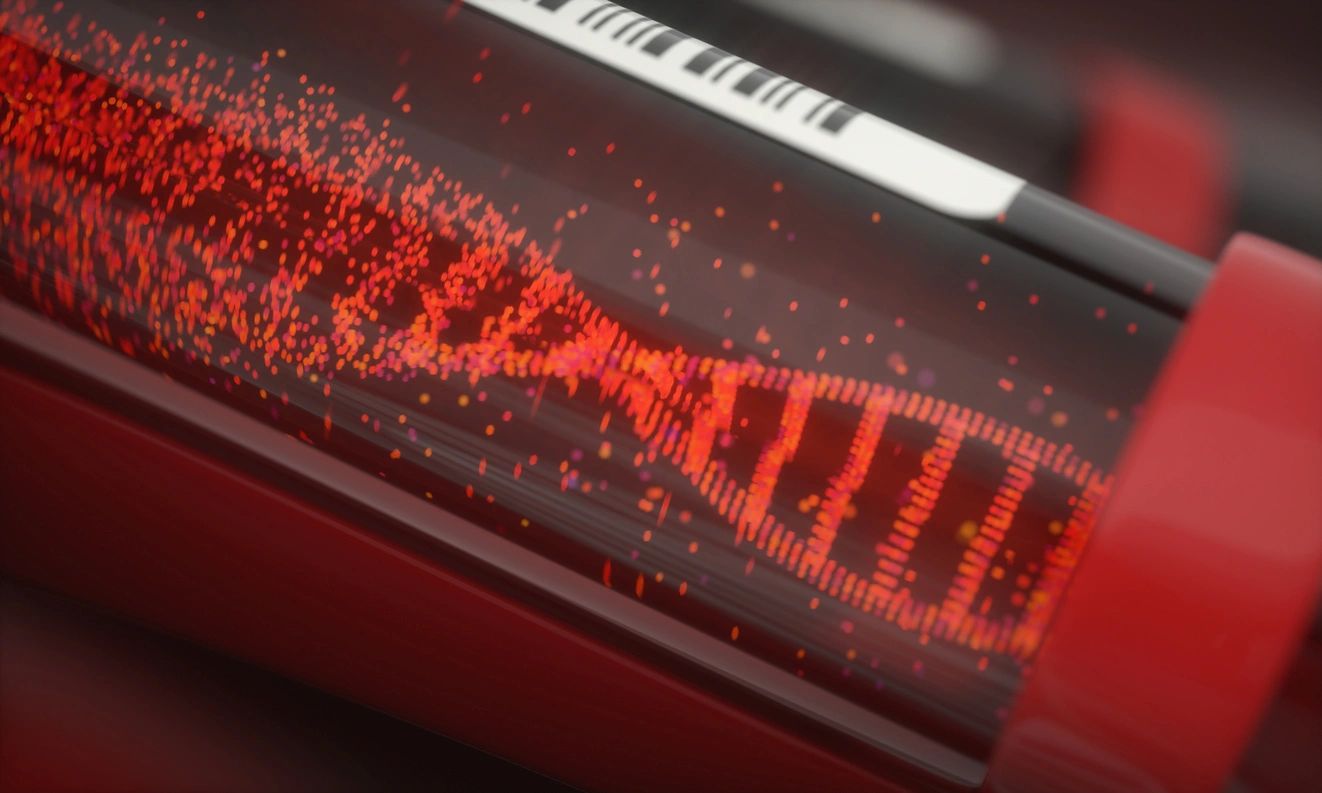Project Description
Biochemistry also called clinical chemistry, clinical biochemistry and chemical pathology. Biochemistry is the study of the chemistry of living organisms.
This department is fully automated with the ability to perform mass quantities of tests in short periods of time. Quality controls and checks are run and recorded before each test procedure is used for testing patient samples ensure that the most accurate and precise results are produced.
Patients can receive results within 24 hours for commonly requested tests.
Biochemistry tests include:
This test is used in the diagnosis and treatment of diseases involving the liver or the kidneys.
This test is used in the diagnosis and treatment of kidney disease.
This test is used in the diagnosis and treatment of hepatobiliary disease, bone disease, and in the diagnosis of parathyroid and intestinal disease.
Alanine Transaminase (ALT) is also called Serum glutamate-pyruvate transaminase (SGPT). Used in the diagnosis and treatment of liver diseases and heart diseases
This test is used in the diagnosis and treatment of diseases and conditions of the pancreas.
Quantitative immunological determination of human antistreptolysin O in serum. Group A streptococci cause different infections that can lead to damage of the heart or kidneys.
This test is used to diagnose and treat liver disease
This test is used in the diagnosis of electrolyte imbalance, acidosis or alkalosis
This test is used in the diagnosis and treatment of carbohydrate metabolism disorders
This test is used in the diagnosis and treatment of carbohydrate metabolism disorders
B-type natriuretic peptide (BNP) and N-terminal-pro-BNP (NT-pro-BNP) are used in the diagnosis and treatment of heart failure and other cardiac problems.
This test is used in the diagnosis and treatment of certain renal and metabolic diseases
This test is used in the diagnosis and treatment of certain renal and metabolic diseases
A calcium blood test measures the amount of calcium in your blood to help in the diagnosis and treatment of a variety of conditions such as bone disease, thyroid disease and kidney disease.
This test is used in the diagnosis and treatment of lipid lipoprotein metabolism disorders.
Creatinine phosphokinase (CPK), also called Creatinine Kinase (CK), is used to detect damage in brain, heart and skeletal muscle tissues.
This test is used to diagnose kidney disease and other conditions affecting the kidneys.
GFR (Glomerular Filtration Rate) is used as an indicator of renal function. Estimated GFR (eGFR) is mathematically derived based on a patient’s serum creatinine level, age, sex and race.
Creatinine clearance test helps determine whether the kidneys are functioning normally.
Many tissues contain CK, therefore high levels of CK can be a sign of a variety of problems. Higher CK-MB may point more directly to heart damage.
Used in the diagnosis and treatment of kidney disease
C-reactive protein (CRP) is produced by the liver in response to inflammation.
A positive D-dimer result may indicate the presence of an abnormally high level of fibrin degradation products. It indicates that there may be significant blood clot (thrombus) formation and breakdown in the body
This test is used in the diagnosis and treatment of liver, hemolytic, hematological and metabolic disorders.
This test is used in the diagnosis and treatment of various conditions such as dehydration, electrolyte imbalance and impaired kidney function.
This test is used in the diagnosis and treatment of liver diseases
This test is used in the diagnosis of liver and kidney disease
Homocysteine is used to detect a deficiency of vitamin B12, B6, or folic acid. It is also used in the diagnosis of homocystinuria and the treatment and diagnosis of heart disease.
The hsCRP test is a highly sensitive quantification of CRP, an acute-phase protein released into the blood by the liver during inflammation, which has been associated with the presence of heart disease.
This test is used for the detection or monitoring of IgA monoclonal gammopathies and IgA-related immune deficiencies.
IgG is widespread in the body. It provides long-lasting defense against most bacterial invasions and other antigens
IgM found in blood and is involved in combating blood infections. It is the first or primary immunoglobulin produced following exposure to an antigen.
This blood test is used in the diagnosis and treatment of liver, hemolytic, hematological and metabolic disorders.
The primary purpose of this test is to check whether a person has abnormally high or low levels of iron in their blood, both of which can cause serious health complications.
The lactate blood test is primarily ordered to help determine if someone has lactic acidosis, a level of lactate that is high enough to disrupt a person’s acid-base (pH) balance.
The lactate dehydrogenase (LDH) test looks for signs of damage to the body’s tissues.
LDL is commonly called ‘bad’ cholesterol. It is used as a predictor of atherosclerosis.
A lead blood test is used to screen for possible excessive exposure to lead.
Luteinizing Hormone also known as LH may be used to investigate infertility or pituitary gland problems in patients.
This test is used in the treatment and diagnosis of diseases involving the pancreas.
This test measures lithium levels in the blood to determine the therapeutic level when just starting lithium medication; to maintain the therapeutic level or to determine lithium toxicity.
Magnesium is needed for many chemical processes in the body such as maintaining normal muscle and nerve function, keeping the bones strong, normal functioning of the heart, regulating blood pressure, helping the body control blood sugar level and helps support the body’s defense (immune) system.
A mercury blood test is used to screen for possible excessive exposure to mercury.
Myoglobin is a small, oxygen-binding protein found in heart and skeletal muscles. Myoglobin is found in the bloodstream is when injury to a muscle has occurred. In particular, injury to the heart muscle.
Phosphorus is a mineral the body needs to build strong bones and teeth. It is also important for nerve signaling and muscle contraction. This test is ordered to see how much phosphorus is in your blood. Kidney, liver, and certain bone diseases can cause abnormal phosphorus levels.
This test is used in the diagnosis and treatment of diseases involving the liver, kidney and bone marrow as well as other metabolic or nutritional disorders
The rheumatoid factor test is used by health care professionals to help in diagnosing rheumatoid arthritis and other autoimmune diseases.
The TIBC test evaluates how well transferrin carries iron through your blood.
This test is used in the diagnosis and treatment of liver, hemolytic, hematological and metabolic disorders.
Transferrin is a plasma protein that transports iron through the blood to the liver, spleen and bone marrow. This test may be requested for several reasons such as: to determine the cause of anemia, to examine iron metabolism (in iron deficiency anemia) and to determine the iron-carrying capacity of the blood.
Triglyceride measurements are used in the diagnosis and treatment of diseases involving lipid metabolism.
Troponin tests measure the level of cardiac-specific troponin in the blood to help detect heart injury.
This test is used in the diagnosis and treatment of renal and metabolic disorders.
A microalbumin test is used to detect early signs of kidney damage in people who are at risk of developing kidney disease.
Vitamin B-12 is necessary for several bodily processes, including nerve function and the production of DNA and red blood cells.
Vitamin D levels can be used to investigate a variety of conditions such as bone disorders and nutritional problems
High levels of VLDL cholesterol have been associated with the development of plaque deposits on artery walls, which narrow the passage and restrict blood flow.
This test used in the diagnosis and treatment of diabetes.
Commonly called ‘good’ cholesterol. HDL is responsible for the reverse transport of cholesterol from the peripheral cells to the liver.
This test is used in the diagnosis and treatment of diseases involving the liver or the kidneys.
Other Services
OPENING HOURS
| Monday – Friday | 7:30 – 5:00 |
| Saturday | 8:00 – 1:00 |



